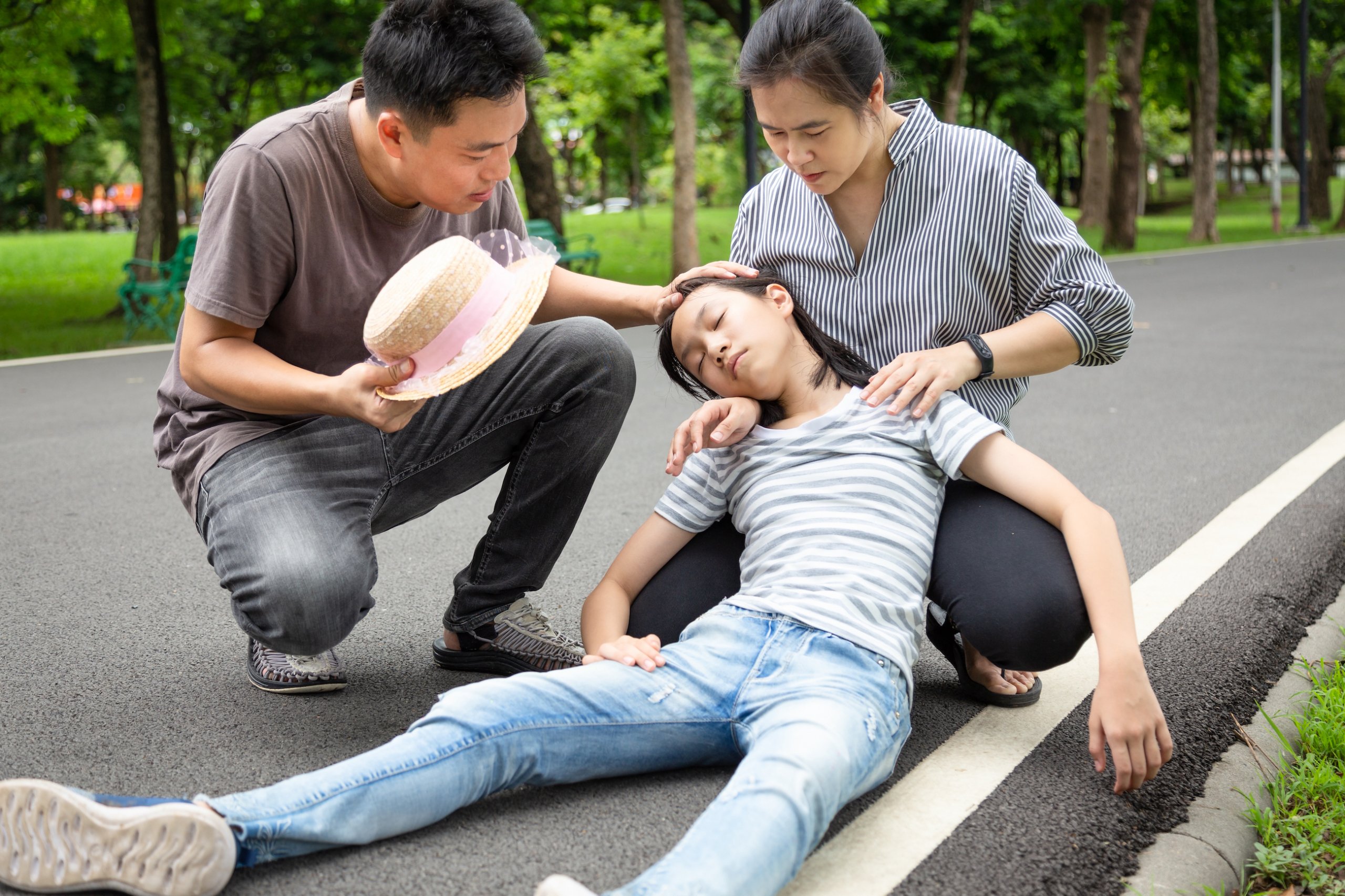Fainting occurs when you lose consciousness for a brief period of time due to a lack of oxygen in your brain. Syncope is the medical word for fainting, however it is more generally referred to as “passing out.” A fainting period might last anywhere from a few seconds to a few minutes.
Feeling lightheaded, dizzy, weak, or sick might occur before fainting.
Some persons notice noises fading away and describe the experience as “blacking out” or “whiting out.”
A complete recovery normally takes only a few minutes. You may not require therapy if there is no underlying medical disease causing you to faint.
Fainting is seldom a reason for alarm, but it might be a sign of a significant medical condition. If you have no history of fainting and have fainted more than once in the last month, consult your doctor.
What Causes One to Faint?
- Fear or another type of emotional distress
- Extreme pain
- A sudden decrease in blood pressure
- Standing up too soon
- Physical activity in hot weather
- Excessive coughing
- Diabetes-related low blood sugar
- Hyperventilation
- Dehydration
- Too much time spent in one place
- Straining when having a bowel movement
- Ingesting drugs or alcohol
- Seizures
- High blood pressure
- Allergies
- Depression
- Anxiety
- Diabetes
- Heart disease
- Atherosclerosis
- An irregular heartbeat, often known as arrhythmia
- Panic or anxiety attacks
- Emphysema and other chronic lung diseases
Types Of Fainting?
-
Vasovagal syncope:
The vagus nerve is involved in vasovagal syncope. It can be induced by emotional trauma, stress, the sight of blood, or prolonged standing.
-
Carotid sinus syncope:
This kind occurs when the carotid artery in the neck becomes constricted, generally as a result of moving your head to one side or wearing an overly tight collar.
-
Situational syncope:
This kind is caused by straining while coughing, peeing, moving your bowels, or experiencing gastrointestinal issues.
How Can Fainting Be Prevented?
What to do if someone faints
When is fainting considered an emergency?
- is unable to breathe
- does not recover consciousness within minutes
- has been injured or is bleeding after falling
- is pregnant
- has lost control of his or her bowels or bladder
- has speech or visual problems
- stays perplexed or disoriented
- has diabetes
- has never fainted before and is beyond the age of 50
- has a rapid pulse
- has a history of heart disease or has complained of chest discomfort or pressure
- gets convulsions or has a tongue injury
- is incapable of moving their limbs
Diagnostic tests
- Holter monitor: This is a portable heart monitor that you must wear for at least 24 hours.
- Echocardiogram: This test use sound waves to create a moving image of your heart.
- Electroencephalogram: The electroencephalogram (EEG) measures your brain’s electrical activity. Your doctor will typically be able to identify whether you fainted or had a seizure after hearing about your symptoms. If they are doubtful, they will conduct an EEG.










